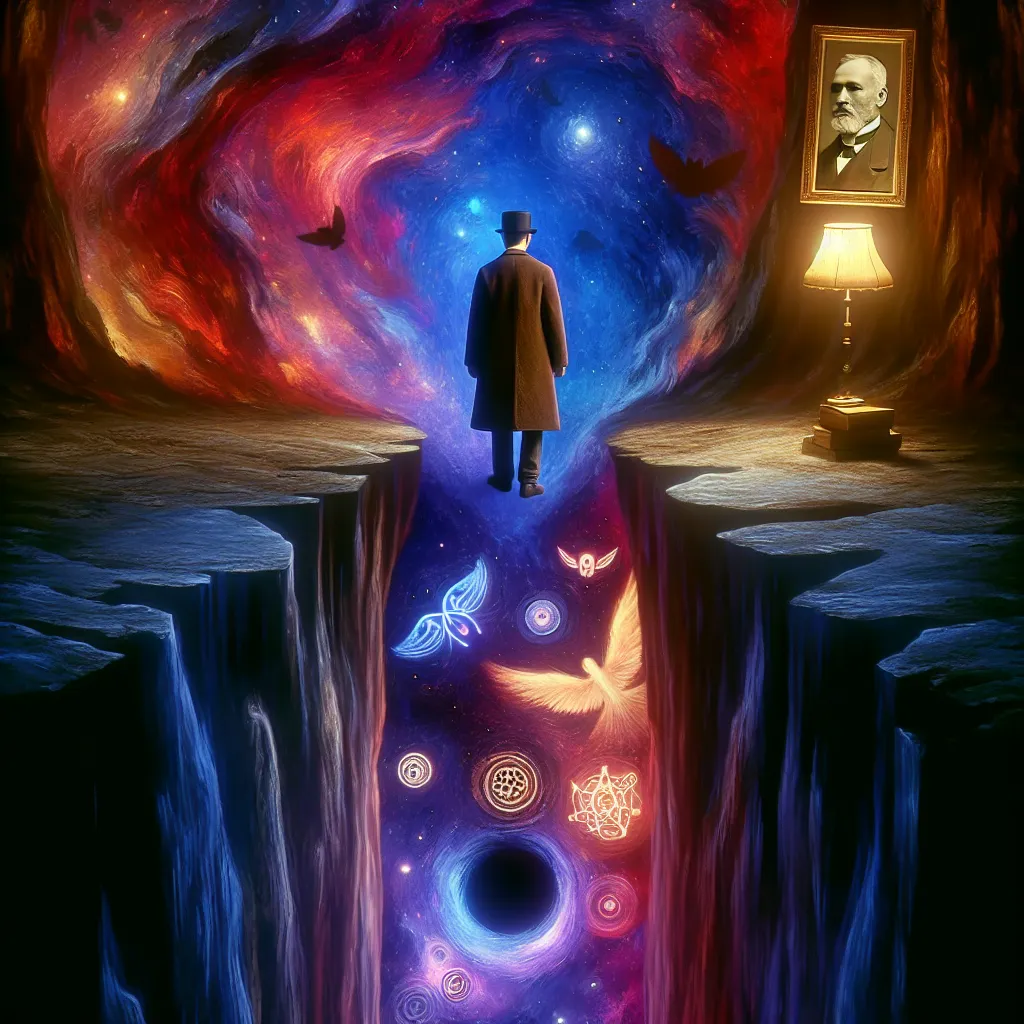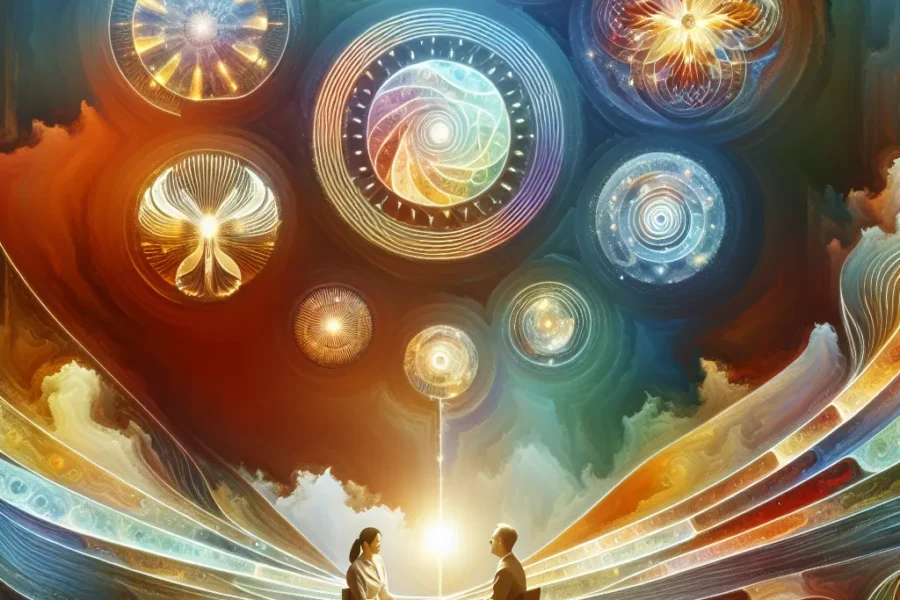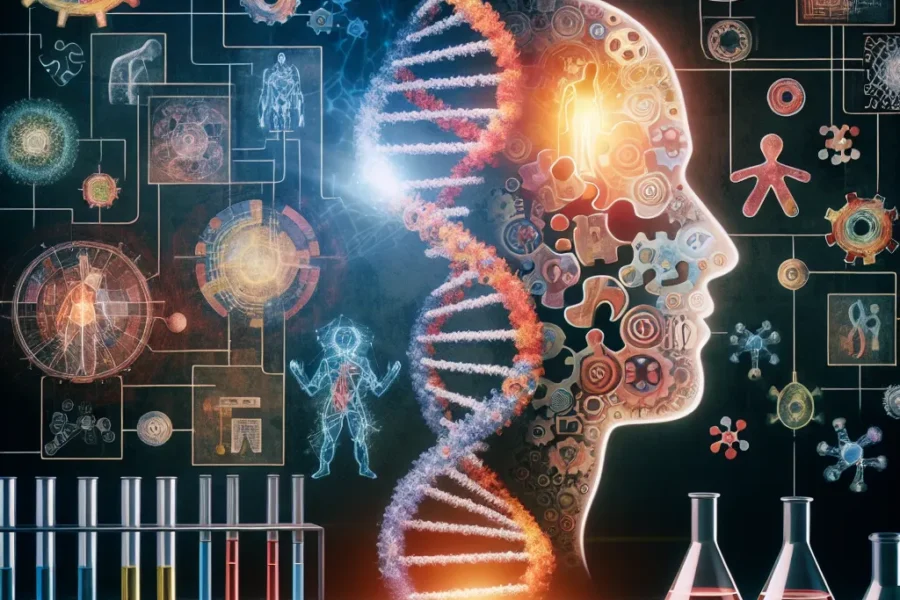The unconscious mind remains one of the most enigmatic and intricate parts of human psychology. Its depths are profound, and its influence on the conscious mind is both mysterious and profound. Among the many scholars and psychologists who have endeavored to explore this hidden realm, Carl Jung stands as a colossus, with his theories illuminating the murky waters of the unconscious like few others have.
Carl Gustav Jung, a Swiss psychiatrist and psychoanalyst, made significant contributions to psychology with his exploration of the deep aspects of the human psyche. His work on the unconscious has not only expanded the understanding of the human mind but has also left a profound impact on psychotherapy, mythology, religious studies, and art. Jung’s theories on the collective unconscious, archetypes, and the process of individuation offer a comprehensive framework through which we can understand the hidden parts of ourselves and navigate the complex terrain of our inner worlds.
The concept of the unconscious developed by Jung goes beyond the personal unconscious, which contains forgotten or suppressed experiences unique to an individual. He introduced the idea of the collective unconscious, a repository of universal experiences inherited from our ancestors. These shared experiences manifest in the form of archetypes, which are basically innate, universal psychic dispositions that form the substrate from which common symbols, myths, and motifs in various cultures arise.
One of the most fascinating elements of the depths of the unconscious is these archetypes. These are images and themes that derive from the collective unconscious and appear in dreams, fantasies, and myths. The most notable archetypes include the Persona, Shadow, Anima/Animus, and the Self. The Persona represents the social face we present to the world, the Shadow contains the hidden and potentially negative aspects of ourselves, the Anima/Animus symbolizes the feminine aspects within the male psyche and vice versa, and the Self represents the unity and integration of the entire personality.
Jung’s method of exploring the unconscious involved dream analysis, active imagination, and the use of symbolism. By encouraging his patients to recount and examine their dreams, he helped them to access the unconscious messages that were manifesting through their subconscious. Dreams, according to Jung, are the direct pathway to the unconscious and serve as the natural expression of our undeveloped parts. Moreover, active imagination, a technique of meditation and visualization where individuals engage with their unconscious mind, was another method he promoted for self-discovery and psychic integration.
Another critical part of Jung’s analytical psychology is the process of individuation, which is the central process of human development as per Jungian theory. Individuation is the psychological process of integrating the opposites, including the conscious with the unconscious while still maintaining their relative autonomy. This allows for a more harmonious and balanced personality. The journey of individuation is a personal quest for wholeness, wherein an individual seeks to understand the unconscious elements and incorporate them into consciousness, thus achieving self-realization.
Exploring the depths of the unconscious is not merely a therapeutic process; it is also replete with spiritual connotations. Jung found a deep connection between the inner psychic processes and the spiritual quest in many traditions. He believed the symbols and motifs from various myths and religious practices to be reflections of the collective unconscious, serving both as guidance for the personal journey of the individual and as bridges to the shared human experience.
The influence of Jung’s insights into the unconscious has stretched far beyond clinical psychology. For instance, his concepts have been applied in the arts, where creative minds use his understanding of archetypes and the collective unconscious to craft narratives that resonate on a universal level. In literature and film, characters and plots often embody Jungian archetypes, making stories compelling and relatable across different cultures. Furthermore, his ideas have permeated organizational psychology, where understanding the persona has become essential for professional development and management strategies.
The digital age has also seen a revival in interest toward Jung’s theories. SEO strategies often utilize Jungian concepts to create content that taps into archetypal narratives and themes, offering users a sense of connectivity and deeper engagement. By understanding the common symbols and stories that appeal to the collective unconscious, marketers and content creators can craft powerful messages that resonate with a wider audience.
Jung’s work on the unconscious opens a doorway to the labyrinth of the human spirit. Exploring the depths of the unconscious can be a daunting task, filled with unknowns and shadowy recesses. Yet, it is a profoundly rewarding journey toward self-understanding and growth. It requires courage, patience, and a willingness to confront the darker parts of oneself – but the insights gained can lead to greater wholeness and fulfillment.
Jungian psychology has contributed extensively to the modern understanding of the human psyche. The exploration of the depths of the unconscious has the potential to transform individual lives by unlocking creativity, resolving internal conflicts, and fostering psychological development. For those courageous enough to embark on this journey, Jung’s framework offers a map to navigate the complex and often challenging terrain of the inner world.
In summary, the exploration of the unconscious is pivotal to the ideas advanced by Carl Jung. Through the understanding of archetypes, the collective unconscious, and the process of individuation, Jung’s work provides invaluable tools for deciphering the messages of the unconscious mind. It is a journey that promises not only greater self-awareness and psychological health but also a deeper connection with the shared heritage and collective soul of humanity. Jung’s legacy endures as a testament to the profound depths of the unconscious and its enduring significance in the quest to understand the human condition.



Leave a Comment